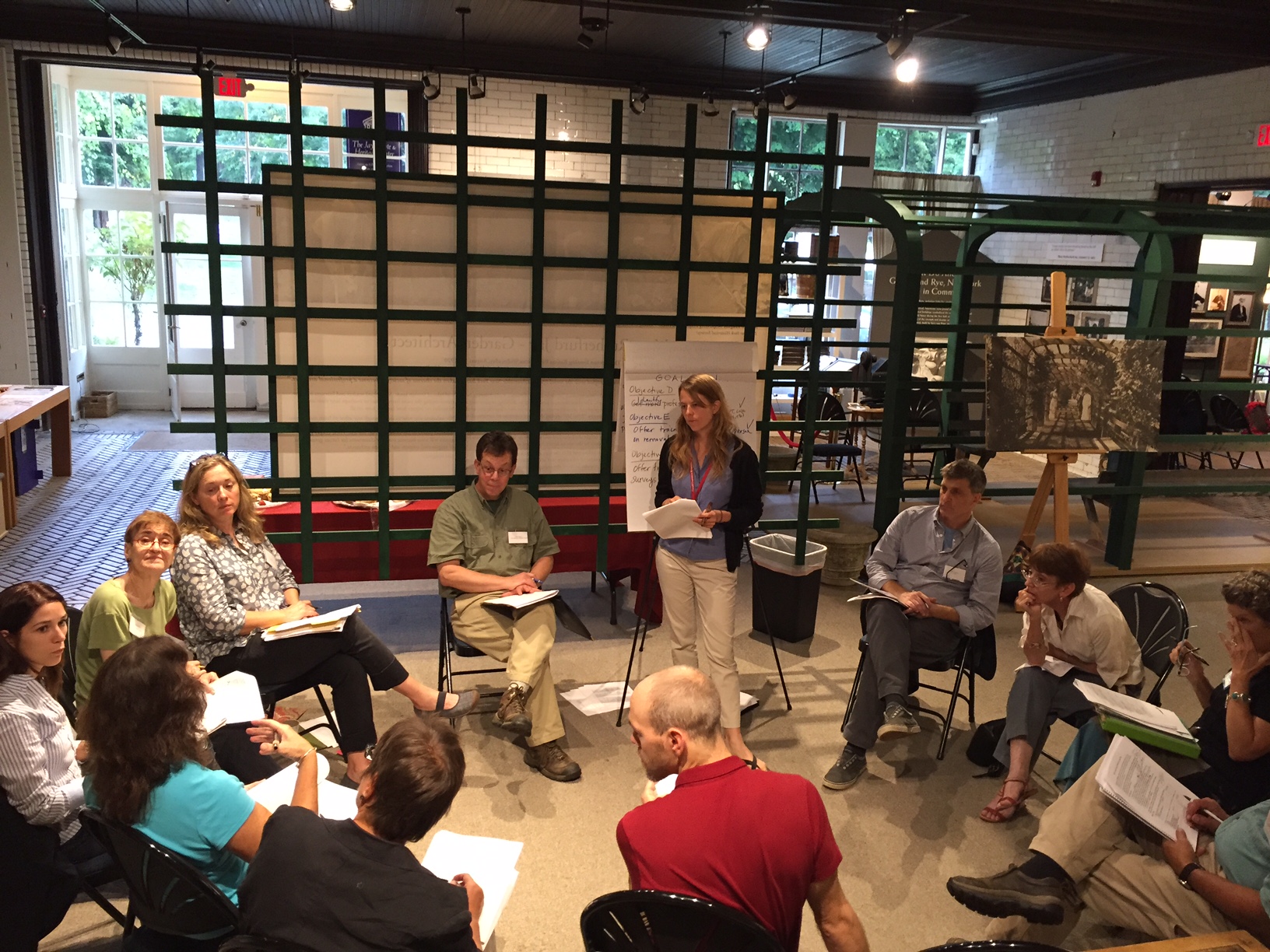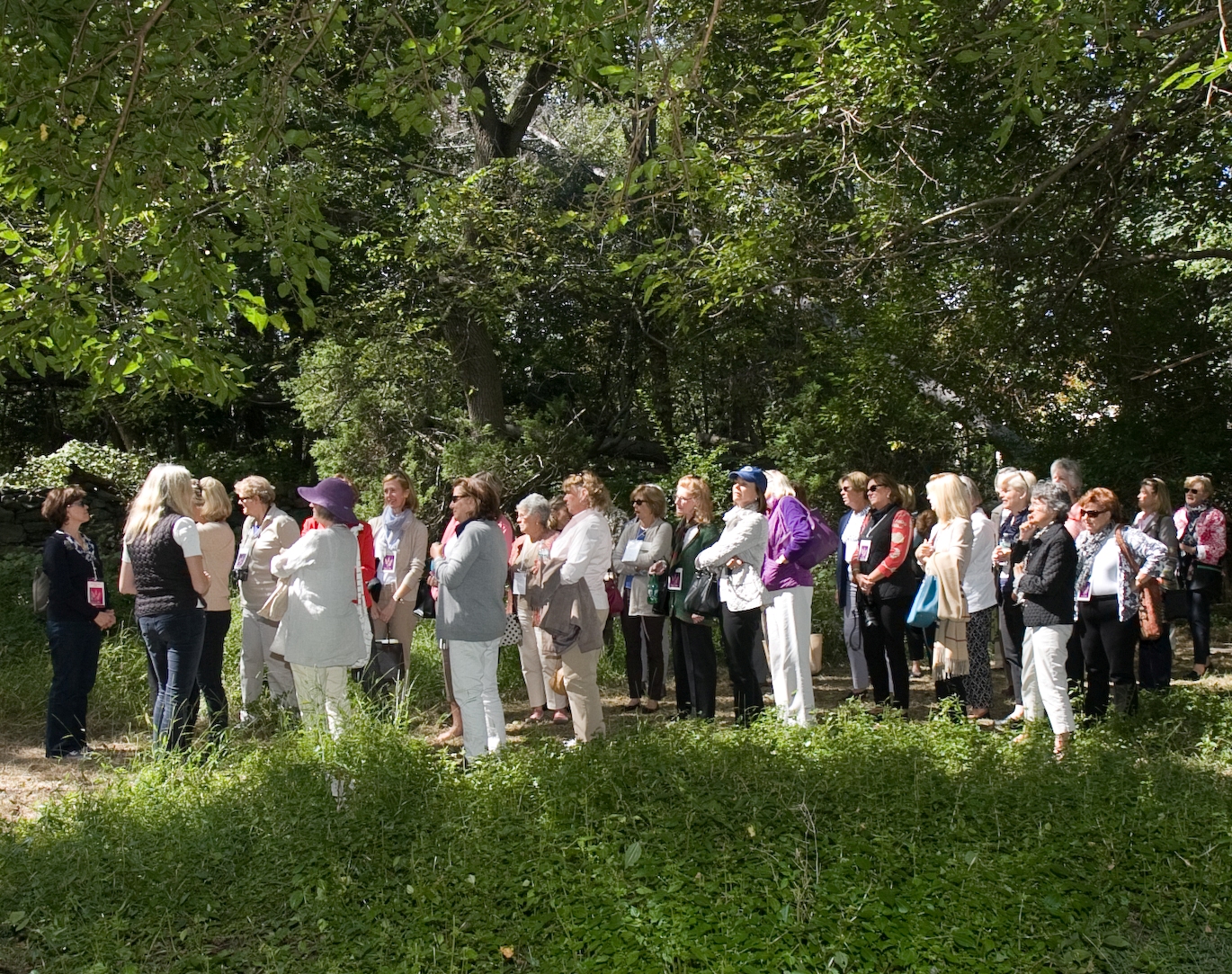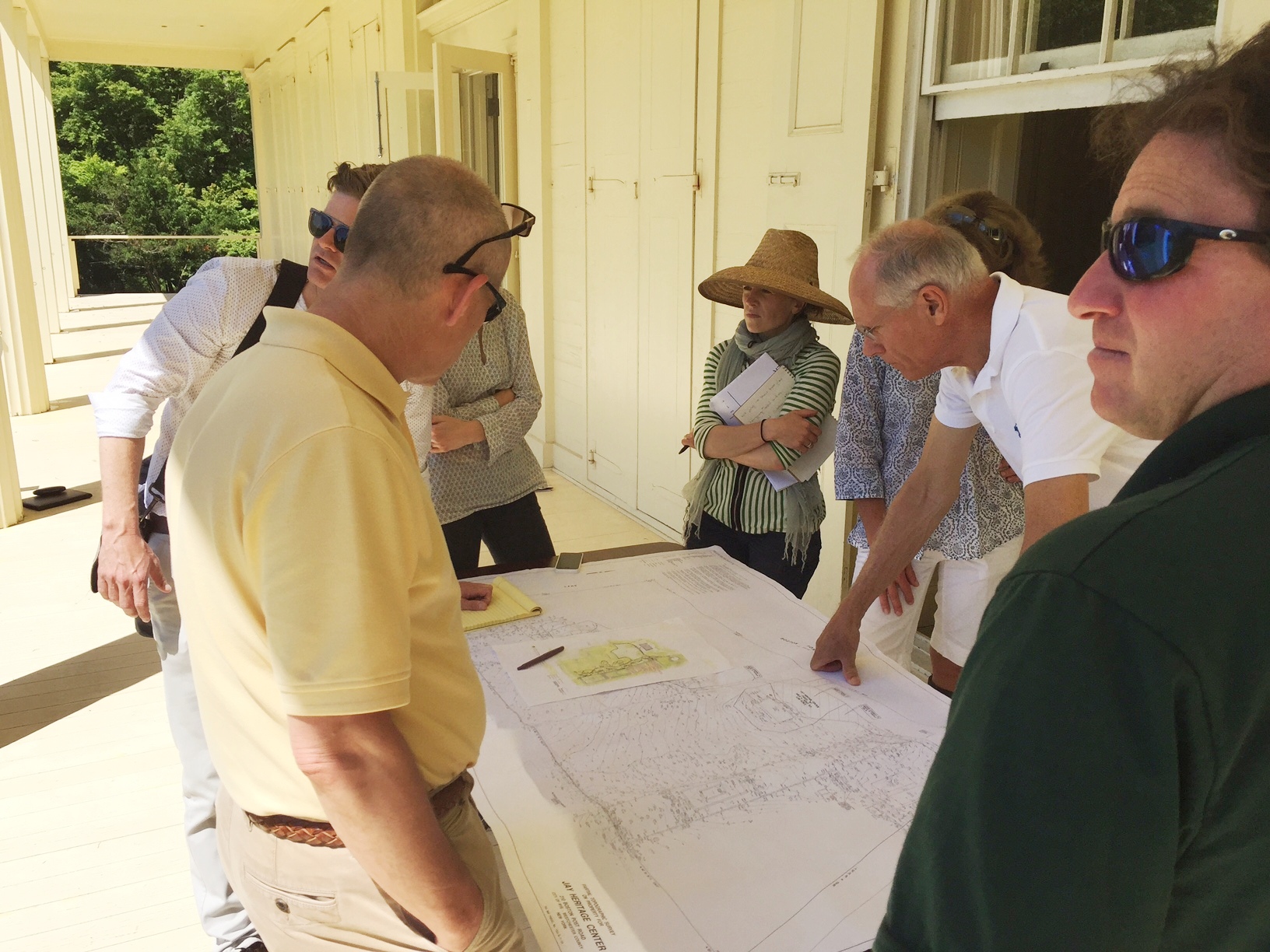Environmental Stewardship
Successful Habitat Restoration Involves Collaboration and Education
JHC’s environmental stewardship plan for the Jay Estate includes collaborations with peer institutions to educate public about best practices in habitat restoration including the importance of invasive species management.
An invasive species can be any kind of living organism—an amphibian, plant, insect, fish, fungus, bacteria, or even an organism’s seeds or eggs—that is not native to an ecosystem and which causes harm. They can harm the environment, the economy or even, human health. – National Wildlife Federation
Invasive species affect all New Yorkers – from hikers to highway personnel, from birders to boaters and from farmers to foresters. They outcrowd native species and create unhealthy monocultures. Using our backyard in Rye as a classroom, it is our goal to not only take affirmative action but at the same time educate people about how invasives can compromise ecological systems.
The Jay Heritage Center is a partner of the Lower Hudson Partnership for Regional Invasive Species Management (LHPRISM) . LHPRISM educates the public and peers about the impact of invasive species on native species and their habitats. We collaborate with New York Department of Environmental Conservation (NYDEC) and the NY/NJ Trail Conference. Our mission is to protect the rich biodiversity of our region by first positively identifying and quantifying the threats and then pinpointing conservation areas. As a LHPRISM partner, JHC has hosted the Annual meeting, exchanged findings at regular partner workshops, sponsored iMapInvasives training sessions and more. JHC is currently a sentinel site for spotted lanternfly and working closely with NY State Parks to stop the spread of this devastating pest.
Learn more about LHPRISM .

Collectively, the LHPRISM focuses on likely areas of introduction of invasive species, both terrestrial and aquatic as well as methods of early detection and response. Over 40 partners, which include Scenic Hudson, Westchester County Parks, The Native Plant Center, The Westchester Land Trust and JHC to name a few, are dedicated to reaching out to new audiences, to increase public awareness and participation- we hope to inform teachers, students, municipalities, Master Gardeners, and landscape professionals.
Our partners meet regularly, break out into groups to strategize about ways to improve public outreach, add observations to our mapping database and expand awareness about the impacts of invasive species: Terrestrial species of concern include Japanese knotweed, mugwort, multiflora rose, Norway maples, Japanese angelica tree, garlic mustard, porcelainberry, Japanese stiltgrass, and Chinese silver grass. Aquatic Invasive Species (AIS) include hydrilla and European millefoil. Learn what’s on the prohibited list at NYIS.org

Garden Clubs care about the impact of invasive species on treasured green spaces too. JHC is proud to have been awarded two historic preservation awards from the Garden Club of America for our thoughtful approach to preserving and revitalizing the Jay landscape.
JHC regularly solicits feedback from stakeholders and experienced parks and garden stewards to guide its decision making. In 2013, JHC hosted over 100 delegates from 22 New York State GCA clubs for the Zone III Annual meeting. Green thumbed horticulturists, historians and civic volunteers from Rochester, Millbrook, Binghamton, Bedford and more – along with officers of the GCA including the Chairs of Conservation and Scholarship attended Seeds of Rye. The 3 day event was spearheaded by JHC partners, the Rye Garden Club and The Little Garden Club of Rye. Charles Birnbaum, President of The Cultural Landscape Foundation (TCLF) was a keynote speaker.

Decisions about removal, and most importantly replanting, are made by members of our Landscape Committee which includes JHC Board Members and representatives of New York State Parks, Westchester County Parks, Nelson Byrd Woltz Landscape Architects, and Larry Weaner Landscape Associates. Additionally, we have sought advice from recognized environmental experts like E. O. Wilson, Tom Wessells and Doug Tallamy.
We pair what we are doing on site with complimentary talks and workshops. Our most recent program was “Managing Common Invasive Species in Home Gardens Lecture with Master Gardener Ann Barry.” It was co-sponsored by the LHPRISM, Cornell Cooperative of Rockland County, Hudsonia, Little Garden Club of Rye, Rye Garden Club, and the Sustainability Committee of Rye. It can be viewed online .